|
There are times when a pig gets sick, you have no idea why, but all of a sudden, you're cleaning up vomit and your pig has no interest in food. (strange, I know) Pigs have a natural instinct to NOT show signs of weakness, so when your pig is visibly showing signs of being sick, your pig is probably super sick. They are prey animals, so in the wild, a sign of weakness can get you killed. Pigs mask illnesses until they can no longer act like everything is ok. They're not like kids (or some men) who whine and cry when they're sick, they are strong and sometimes a behavioral change is the only sign that something may be wrong. They gradually start showing other signs as they get sicker, but there have even been times when the parents didn't notice anything was wrong and they woke up to find their pig had passed away overnight. Know your pig, know your pigs routine. Know how often your pig pees and poops through any given day. Know your pigs normal core body temperature. Know your pigs behavior. Knowing these things will help you see subtle changes that can literally save your pigs life. The very first thing you need to do is check for a fever. Pigs core body temperature's shouldn't be more than 100 degrees in my experience; although each pigs normal temperature can be slightly different. Mini pigs have a lower core temperature than farm pigs and likely slightly lower than piglets whose tend to be a bit higher. Cathy Zolicani, DVM, was kind enough to write up an article about dealing with a vomiting pig and you can check that article out in our first aid section or by clicking here. Know that just because your pig doesn't have a temperature right now, doesn't mean your pig will not develop one in a couple of hours. Things can go from slightly worried to full panic mode super quick. A normal temp for most mini pigs older than 3 months is somewhere between 98-100. If my pig has a fever of 101? I personally monitor and take it again every 4 hours or so until its normal. At 102, I treat the fever. At 103 or above?, I call my vet. Having a low grade temperature can be helpful because it is the body's natural way of fighting an infection. A higher core temperature is a result of WBC's (white blood cells-the body's cells used to target and attack infections or foreign objects introduced in the body) and pyrogens, which are the chemicals fevers produce. These pyrogens make their way to the brains hypothalamus, which is the temperature regulator for the body, but when these pyrogens bind to certain receptors in the brain, the result is an elevated body temperature, otherwise known as a fever. Some of the pictures below are graphic.... It is so exciting when you are bringing a pig home for the first time, but, if this pig is new to your family, it can take a few days to adjust to a new home, new family, new rules and a new routine. Since pigs are fairly routine animals and do not like change, some pigs will refuse to eat for a day or so after making a transition to a new home. Not to mention how scared pigs are when moved to an unfamiliar place, away from his mama and/or siblings (if this is a piglet), and placed in an unknown area with people hovering over them, that would be scary for any animal, but especially to one that is preyed upon naturally. If a pig in these circumstances hasn't eaten in more than 48 hours OR if this is a piglet and there is no eating or drinking after 24 hours, I would call a vet whether there is a fever or not, just to be on the safe side. Animals can only survive for so many days without eating, but even less without drinking. You can view our new pig parent section by clicking here for tips on how to make this process smoother for you and your pig. But, what if your pig DOES have a temp? Typically, that means the body is trying to fight off something. The something is what needs to be determined. Elevated temperatures in pigs happen for a number of reasons, as does vomiting. Is it hot outside? Your pigs core temp can be elevated due to heat. Your pig can also vomit because of getting too hot, this is one of the signs of a heat stroke. You can read more about summertime issues by clicking here and reading our seasonal issues section. There are possibilities of bacterial or viral infections as well. If you choose not to vaccinate your pig, there are a host of bacterial infections your pig can get even if there is only one pig and your pig has never had contact with another. Some of these major illnesses are in the soil your pig digs around in. Erysipelas is a great example of a bacterial infection that your pig can contract without ever being exposed to another pig. It IS found in the soil. Other animals spread disease and carry pathogens from property to property. Some diseases are caused by other species waste, some are literally carried over by birds dropping rodents or their remains onto your property, etc. Click here to read more about erysipelas. Your pig won't necessarily vomit as a sign of this infection/illness, but your pig will likely stop eating and drinking, become lethargic and most likely run a fairly high temperature. This isn't the only illness your pig can get, we have several major illness listed in our pig health section that you can read about by clicking here. Pneumonia is another common illness that can suddenly show up literally within hours. There may or may not be signs of illness leading up to your pig going off feed, but there is usually a high temperature as well. Click here to read more about pneumonia. If you are curious about vaccinations, you can click here to read more about what is available or suggested for pet pigs. There is also the possibility of obstructions. Intestinal obstructions aren't something that we see every single day, but it is fairly common. Pigs like to eat things, well, pigs like to eat EVERYTHING. This is problematic for a few reasons. 1, they tend to eat things that we wouldn't normally feed them. (trash, walls, carpet) 2, they don't understand that something may not be good for them or potentially toxic or dangerous for them to eat. 3, pigs tend to swallow without doing much chewing. Because of this, the risk for them swallowing something too big to pass through the intestines is higher than some other animals. 4, most pigs aren't as hydrated as we would like them to be, especially in the hotter months. Not being hydrated can lead to constipation which can lead to fecal impaction and ultimately, a blockage. Click here to read about constipation and how to help a constipated pig. 5, parasites!! Worms in the intestinal tract can bind together and cause a blockage, as gross as that is. Parasite control is important. Anti-parasite medications can be given orally and can rid your pig of common worms as well as other parasites. Click here to learn more about getting your pig on a deworming schedule and what medications you can purchase to routinely treat for parasites. Based on what your pig has access to, most pigs are at risk. Pigs will eat rocks, plastic bags, wrappers from food items, blankets, even hay can bind up in the intestinal tract and cause a blockage. I have seen cases where undigested pellets caused an obstruction that required surgery. (which is one of the reasons why we suggest soaking pellets before feeding, not only does this allow them to swell and help your pig feel full, versus depending on your pig to drink enough water to get the pellets to the swelled state in order to give the the brain the signal to tell the stomach it has had enough to eat. Soaking the pellets also reduces the chances of the pellets being digested in their pelleted form and causing a blockage) Sometimes bowel obstructions aren't because of anything ingested. There are times when the bowels twist and because of that twisted gut, the bowels can't operate as they're intended causing no blood flow to that area and necrosis. The necrotic bowel will never function again and only surgery to remove the dead parts can correct something like this. Click here to read more about obstructions. The take away from this? If your pig has a fever, is vomiting and hunched over attempting to poop but isn't able to or nothing is coming out? That is an emergency. Get your pig to the vet! Most people see they're running low on pig feed and go ahead and buy a new bag before they run out. That is obviously the responsible thing to do. However, depending on how you store your pig feed, whether that be in the bag or you use a container of some kind, be sure to dump excess feed at the bottom out into something else before adding new feed to the top. Feed does go bad, feed does spoil, feed does mold. These can all cause vomiting in your pig. Spoiled feed can actually cause many more problems than just vomiting. They can actually die from ingesting the resulting toxic substance usually referred to as mycotoxins which is actually a toxic product produced by a fungus/mold. ALWAYS check the feed for mold. Use clear storage containers so you can see the bottom at any given time. Moist, hot and dark places are ideal for molds to thrive. An example of this occurring is a family that keeps their pigs feed in the bag in their small laundry room. The heat in the room from the dryer can cause moisture in the air, the dark conditions in the bag are a perfect spot for mold to live and the heat from the dryer helps the process come together. Between the three things, this is the perfect environment for mold to thrive. Click here to read more about spoiled/bad feed. Let me add, once you see the mold, it's been there for a while. You can NOT just remove the surface mold and feed the rest to your pig, mold has a root like system and that whole batch of feed needs to be thrown away, maybe even sent for testing. Contact the company that made that brand of feed and let them know. Trust me when I say, they want to know when theres a problem with their feed. Most major brand feed companies ask that you notify them if you experience moldy food. They will likely ask you to send a small sample of that feed to them so they can determine why it is moldy and/or proof of purchase. (for the date feed was sold versus when it should've been removed from the shelf at the store/expired) Keep your feed bags regardless, there are programs in place where some of our piggy friends are using those feed bags and making totes to sell and the profits go to some of the pig rescues. Click here to learn more about that program. The information about saving the feed bags is at the bottom of that page. If your pig refuses feed, check inside the mouth. Although we suggest routinely checking your pig over including inside the mouth on a daily basis, some pigs aren't necessarily huge fans of this. Check your pigs teeth to be sure there isn't some type of abscess or infection in the mouth. Perhaps there is a loose tooth that is causing discomfort and you'll need to make sure your pig gets food that is easy to chew or maybe there is decay or a toothache, possibly even a broken tooth that is making food difficult to eat. Depending on the age of your pig, you can expect some teeth to fall out and new teeth to erupt. Click here to view our dental section of the website to learn how to care for your pigs teeth. (The dental section is after the hoof section) Don't forget the occasional pig overeating. Pigs will sometimes find their feed, rip the bag open, knock over the storage container, open the cabinet and grab it (or something else) and flat out overeat. Pigs will be pigs and if a source of food is found and they find that is tastes good? yeah, they're going to continue eating until they vomit and they may eat that and then eat some more food if theres no one there to stop them. Depending on what kind of food was eaten, there are some simple things you can do to help your pig that gorges on food like NOT feeding them anymore that day, maybe give them something to settle their stomach or just let them lay around and leave them be. You can click here to learn more about how to handle a pig that gorges on food. These aren't the only reasons why a pig loses interest in eating and/or drinking, but in our experience, these are the most common. Knowing the reasons can sometimes help you stop these kinds of situations from ever occurring. Keep researching, continue to educate yourself. We try and post blogs and create pages when we see common questions and situations occurring, but if you see a concerning trend going on in pig world, let us know and we can write up an article about it after researching. Remember to establish a relationship with a vet so you're not scrambling to find one when you are having an emergency situation. You can view our updated vet list by clicking here. There are more than 1000 vets listed. We have verified that each vet (Most have been verified, on the list sees pigs in some capacity. There are a handful left that were in the process of calling still) Obviously each one will have different levels of care they're able to provide, so if you are having a complicated medical issue, your vet may refer you to one of the university hospitals. Familiarize yourself with an emergency plan. Ask your vet who you should call for after hours emergencies, because we all know pigs don'y usually get sick Monday-Friday between 9am and 5pm, they get sick on nights, weekends and holidays. Most university vet hospitals are open 24/7. Find the closest one to you and call and ask them what their emergency protocol is, just so you're prepared for any situation. Click here to see that list.
We also have a health document that is downloadable/printable on our website. Using this before you call the vet can help you answer questions your vet may have for you about the situation. You can see that form by clicking here. If there are ever questions about your pig in a crisis or urgent situation, and by urgent we mean high fever, lethargic, off feed, etc, CALL YOUR VET!!!!!!!! Do NOT waste time asking people for opinions. Some of these conditions can be treated if your vet is able to intervene in time. Let the first opinion be from your vet, not people you don't know. Familiarize yourself with illnesses that need immediate attention so you don't even have to ask others what they think.
32 Comments
|
AuthorsBrittany Sawyer Archives
July 2019
Categories
All
|
-
- Direct Links To Website Content
- Read BEFORE You Add A Pig To Your Family
- Mini Pig Info Mission
- Teacup/Micro Pig Myth
- What Is A Mini Pig?
- Mini Pig Breeds: Which Ones Are Really Breeds?
- Adoptable Mini Pigs
- Are You As Smart As Your Pig?
- Mini Pig Info Education Series
- Social Media Feeds
- Zoonotic Diseases & Mini Pigs
- Mini Pigs Are NOT Gifts!
- Media/News Links
-
- Pig Health Forms: Tools To Use To Determine If Your Pig Is Sick
-
- Mini Pigs & Erysipelas: Life Saving Info About This Disease
- Dippity Pig Syndrome In Mini Pigs
- Mini Pig Salt Toxicity/Water Deprivation
- Leptospirosis In Mini Pigs
- Swine Pox & Mini Pigs
- Gastric Ulcers: Common Problem For Mini Pigs
- Brucellosis And Mini Pigs
- Mini Pig Pneumonia & Swine Flu
- Foot and Mouth Disease (FMD): A Problem For Pigs In Other Countires
- Pseudorabies: Is My Mini Pig At Risk?
- Mycoplasma Hyosynoviae & Mini Pigs
- Head Tilt In Mini Pigs
- Mini Pig Obstructions: How To Reduce The Risk For Your Pig
- Seizures In Mini Pigs
- Mini Pig Salmonellosis
- PSS (Porcine Stress Syndrome)
- Urinary Tract Infections (UTI) In Mini Pigs
- Urinary Blockages: A Serious Problem For Mini Pigs
- Arthritis And Mini Pigs
- Mini Pig Artophic Rhinitis
- Mini Pig Heart Disease Possibilities
- Common Mini Pig Gastrointestinal Disorders
- Mini Pigs & Pasteurellosis
- Mini Pigs And Rabies
- Mini Pig Genetic Abnormalities
- MIni Pigs & Cancer
- Mini Pig Cough
- Causes For Sudden Death In Mini Pigs
-
- Mini Pig Approved Foods
- Natural Diet For Mini Pigs: How To Create A All-Natural Diet For Your Pig
- Balancing Your Mini Pigs Diet With Activity
- Mini Pig Feed Concerns: Bad/Spoiled Feed
- Mini Pig Nutritional Deficiencies
- How To Estimate A Pigs Weight Without A Scale
- Mini Pig Body Scoring: What Does An Unhealthy Mini Pig Look Like?
- How To Help Your Mini Pig Lose Weight
- Mini Pig Treats And Recipes
- Mini Pig Hydration: The Importance Of Water
-
- Mini Pig CPR/Heimlich Manuever
- Mini Pig Constipation
- How To Treat A Vomiting Mini Pig
- What To Do If Your Mini Pig Gorges On Food?
- Salt Toxicity/Water Deprivation In Mini Pigs
- How To Treat A Fever In Mini Pigs
- Basic Wound Care For Mini Pigs
- Acute Mini Pig Paralysis
- Mini Pig Shock
- What To Do If Your Mini Pig Sustains A Fracture?
- Treatment For Mini Pig Diarrhea
- Hidden Dangers For Mini Pigs: Snakes & Spiders
- Mini Pig Emergency Supplies
- Most Common Mini Pig Problems
-
- Underaged Piglets- The Dangers & Amount Of Care Involved
- How To Estimate The Age Of A Mini Pig
- Mini Pigs and Dogs- Predator Versus Prey- A Risky Combination
- Mini Pig Name Suggestions
- Bathing Mini Pigs
- Mini Pig Travel Regulations
- Mini Pig FAQ
- "Forking" Mini Pigs- No, We Aren't Talking About Eating!
- Mini Pig Potty Training Tips
- Pigs And Stairs: A Potentially Flawed Living Arrangement
- Capturing A Mini Pig On The Loose
- Indoor Mini Pig Spaces
-
-
- Mini Pig Sounds 101
- Mini Pig Harness Training
- Important Information & Tips For Training Your Mini Pig
- Teaching Your Pig To Do Tricks
- Decoding Mini Pig Behavioral Problems
- Mini Pig Behavior: A Quick Introduction
- Common Behavioral Issues In Mini Pigs
- Move The Pig By Lydia Weaver
- Food Aggression In Mini Pigs
- Aggressive Mini Pigs
- Spoiled Pig Syndrome
- ESA (Emotional Support Animals)/Therapy Pets And Service Animals: What Applies To My Mini Pig?
- Mini Pigs Can Be Fun: Training Your Pig Is Key!
-
- Mini Pig Themed Greeting Cards
- Mini Pig DIY Items: Ideas & Inspiration
- Mini Pig Community Chat Forum
- The Loss Of Your Mini Pig
- Website Survey & Various MPI Video Collection
- Mini Pig Research/News Links
- PAL (Pig Advocates League): Our Nonprofit Sister Organization
- Kids Corner: Mini Pig Items For Kids
- Mini Pig Meme's:
- Mini Pig Sitters
- Mini Pig Outreach-Educational Information
- Community Groups For Mini Pig Parents
- "Pigtionary"
- Pig Anatomy and Terminology
- Mini Pig Info Store
- Dear Pig Whisperers Blog
-
- Direct Links To Website Content
- Read BEFORE You Add A Pig To Your Family
- Mini Pig Info Mission
- Teacup/Micro Pig Myth
- What Is A Mini Pig?
- Mini Pig Breeds: Which Ones Are Really Breeds?
- Adoptable Mini Pigs
- Are You As Smart As Your Pig?
- Mini Pig Info Education Series
- Social Media Feeds
- Zoonotic Diseases & Mini Pigs
- Mini Pigs Are NOT Gifts!
- Media/News Links
-
- Pig Health Forms: Tools To Use To Determine If Your Pig Is Sick
-
- Mini Pigs & Erysipelas: Life Saving Info About This Disease
- Dippity Pig Syndrome In Mini Pigs
- Mini Pig Salt Toxicity/Water Deprivation
- Leptospirosis In Mini Pigs
- Swine Pox & Mini Pigs
- Gastric Ulcers: Common Problem For Mini Pigs
- Brucellosis And Mini Pigs
- Mini Pig Pneumonia & Swine Flu
- Foot and Mouth Disease (FMD): A Problem For Pigs In Other Countires
- Pseudorabies: Is My Mini Pig At Risk?
- Mycoplasma Hyosynoviae & Mini Pigs
- Head Tilt In Mini Pigs
- Mini Pig Obstructions: How To Reduce The Risk For Your Pig
- Seizures In Mini Pigs
- Mini Pig Salmonellosis
- PSS (Porcine Stress Syndrome)
- Urinary Tract Infections (UTI) In Mini Pigs
- Urinary Blockages: A Serious Problem For Mini Pigs
- Arthritis And Mini Pigs
- Mini Pig Artophic Rhinitis
- Mini Pig Heart Disease Possibilities
- Common Mini Pig Gastrointestinal Disorders
- Mini Pigs & Pasteurellosis
- Mini Pigs And Rabies
- Mini Pig Genetic Abnormalities
- MIni Pigs & Cancer
- Mini Pig Cough
- Causes For Sudden Death In Mini Pigs
-
- Mini Pig Approved Foods
- Natural Diet For Mini Pigs: How To Create A All-Natural Diet For Your Pig
- Balancing Your Mini Pigs Diet With Activity
- Mini Pig Feed Concerns: Bad/Spoiled Feed
- Mini Pig Nutritional Deficiencies
- How To Estimate A Pigs Weight Without A Scale
- Mini Pig Body Scoring: What Does An Unhealthy Mini Pig Look Like?
- How To Help Your Mini Pig Lose Weight
- Mini Pig Treats And Recipes
- Mini Pig Hydration: The Importance Of Water
-
- Mini Pig CPR/Heimlich Manuever
- Mini Pig Constipation
- How To Treat A Vomiting Mini Pig
- What To Do If Your Mini Pig Gorges On Food?
- Salt Toxicity/Water Deprivation In Mini Pigs
- How To Treat A Fever In Mini Pigs
- Basic Wound Care For Mini Pigs
- Acute Mini Pig Paralysis
- Mini Pig Shock
- What To Do If Your Mini Pig Sustains A Fracture?
- Treatment For Mini Pig Diarrhea
- Hidden Dangers For Mini Pigs: Snakes & Spiders
- Mini Pig Emergency Supplies
- Most Common Mini Pig Problems
-
- Underaged Piglets- The Dangers & Amount Of Care Involved
- How To Estimate The Age Of A Mini Pig
- Mini Pigs and Dogs- Predator Versus Prey- A Risky Combination
- Mini Pig Name Suggestions
- Bathing Mini Pigs
- Mini Pig Travel Regulations
- Mini Pig FAQ
- "Forking" Mini Pigs- No, We Aren't Talking About Eating!
- Mini Pig Potty Training Tips
- Pigs And Stairs: A Potentially Flawed Living Arrangement
- Capturing A Mini Pig On The Loose
- Indoor Mini Pig Spaces
-
-
- Mini Pig Sounds 101
- Mini Pig Harness Training
- Important Information & Tips For Training Your Mini Pig
- Teaching Your Pig To Do Tricks
- Decoding Mini Pig Behavioral Problems
- Mini Pig Behavior: A Quick Introduction
- Common Behavioral Issues In Mini Pigs
- Move The Pig By Lydia Weaver
- Food Aggression In Mini Pigs
- Aggressive Mini Pigs
- Spoiled Pig Syndrome
- ESA (Emotional Support Animals)/Therapy Pets And Service Animals: What Applies To My Mini Pig?
- Mini Pigs Can Be Fun: Training Your Pig Is Key!
-
- Mini Pig Themed Greeting Cards
- Mini Pig DIY Items: Ideas & Inspiration
- Mini Pig Community Chat Forum
- The Loss Of Your Mini Pig
- Website Survey & Various MPI Video Collection
- Mini Pig Research/News Links
- PAL (Pig Advocates League): Our Nonprofit Sister Organization
- Kids Corner: Mini Pig Items For Kids
- Mini Pig Meme's:
- Mini Pig Sitters
- Mini Pig Outreach-Educational Information
- Community Groups For Mini Pig Parents
- "Pigtionary"
- Pig Anatomy and Terminology
- Mini Pig Info Store
- Dear Pig Whisperers Blog


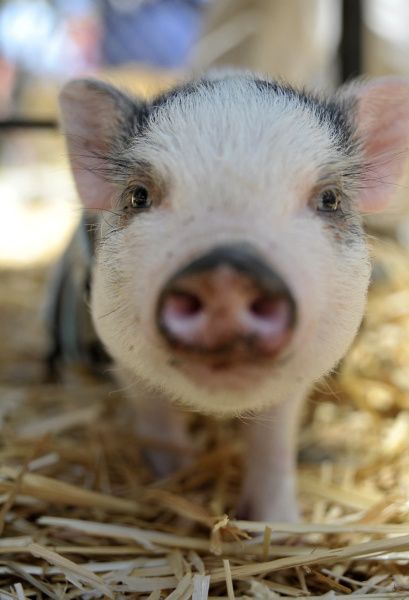
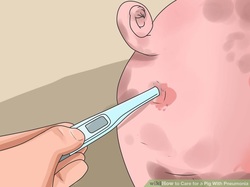

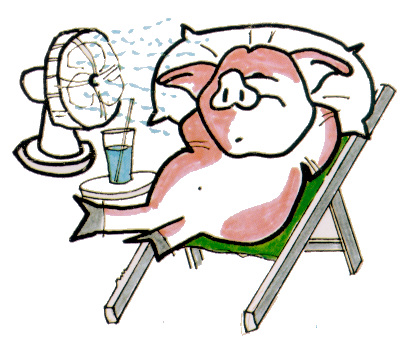
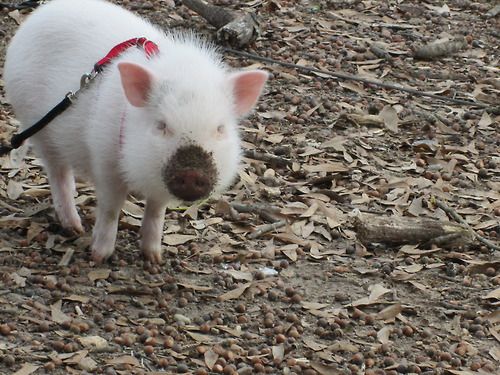
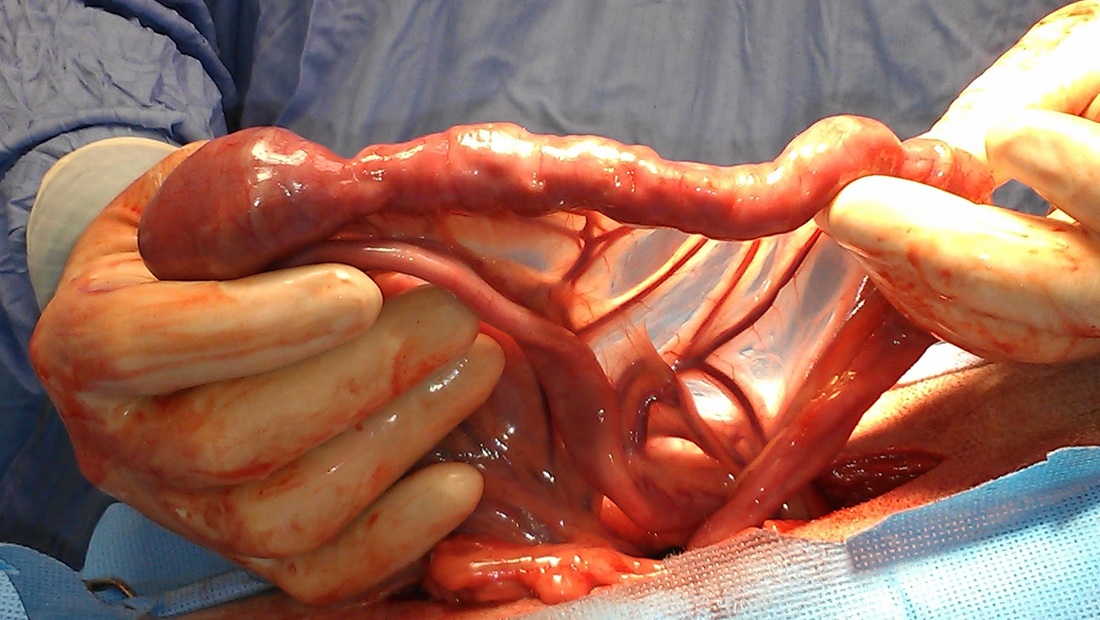
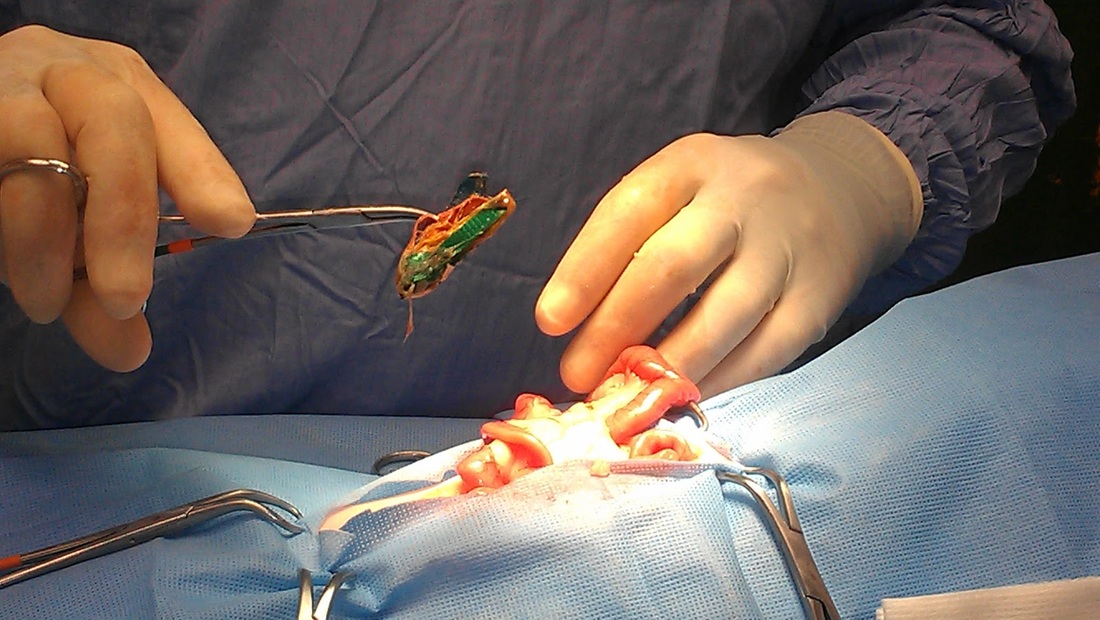
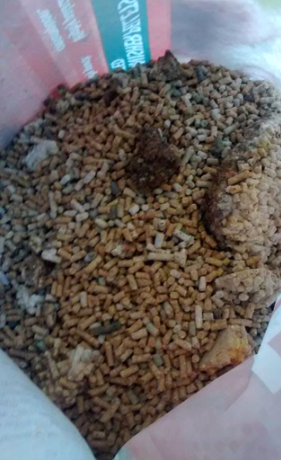
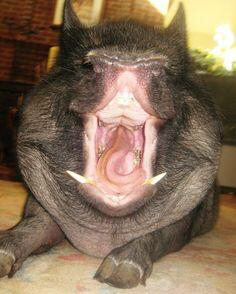
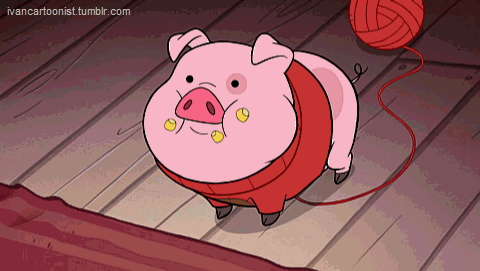
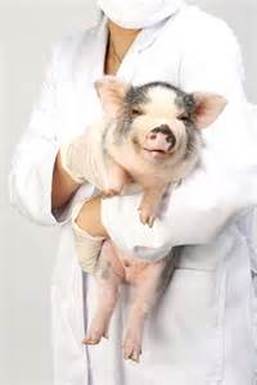


 RSS Feed
RSS Feed